St. Albert Initiative – Notre Dame Seminary, New Orleans, Louisiana
Friday, February 2, 2024
What is the St. Albert Initiative?
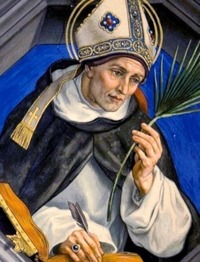
The St. Albert Initiative is a school day program on science and faith for Catholic high school students, teachers, and parents. It will feature short talks by Catholic scientists and the opportunity to meet, eat with, and ask questions of Catholic scientists in many fields.
This initiative is named after St. Albert the Great, bishop, scientist, philosopher, theologian, teacher, and patron saint of natural science and scientists.
The St. Albert Initiative is sponsored by the Science and Religion Initiative of the McGrath Institute for Church Life, and the Society of Catholic Scientists (SCS), with generous grant funding from the John Templeton Foundation.
Conference Highlights Include:
-
A 45-minute Opening Talk on "Science and Religion: the Myth of Conflict."
-
‘Lightning Round’ Talks. There will be three rounds of 25-minute talks, with a menu of 10 talks to choose from.
-
Big Questions/Ask-a-Scientist Poster Session. Attendees will have an opportunity to meet Catholic scientists one-on-one and ask them about their fields of science, career paths, the big unsolved questions in their areas of science, being a Catholic in science, and anything else they are curious about. The scientists will be a varied group: young and old; male and female; experimenters and theorists; and in many areas of research. Students interested in STEM subjects and teachers interested in renewing their own understanding will dialogue about high-impact topics, including: virology, the fossil record, the human brain, energy and the environment, stem cells, fighting cancer, evolution, astronomy, and artificial intelligence.
Registration
Registration is open to all high school students, teachers, and parents. Invited schools each have 20 spots reserved.
The invited schools are as follows: Academy of the Sacred Heart (New Orleans, LA); Archbishop Chapelle H.S. (Metairie, LA); Archbishop Hannan H.S. (Covington, LA); Archbishop Rummel H.S. (Metairie, LA); Holy Cross H.S. (New Orleans, LA); Jesuit H.S. (New Orleans, LA); John Paul the Great Academy (Lafayette, LA); Mount Carmel Academy (New Orleans, LA); St. Joseph’s Academy (Baton Rouge, LA); St. Mary’s Dominican H.S. (New Orleans, LA); St. Scholastica Academy (Covington, LA).
However, we encourage all Catholic high school students, teachers, administrators, and parents to apply. If spots are unused, they will be filled in the order received.
Already registered? Please fill out the lunch and breakout session survey here.
Program and Schedule
Friday, February 2, 2024
| 9:00 - 9:45 a.m. | Sign-In (Schulte Auditorium) |
| 9:45 - 10:00 a.m. | Introduction and Morning Prayer |
| 10:00 - 10:45 a.m. | "Science and Religion: the Myth of Conflict" by Stephen Barr |
| 10:45 - 11:00 a.m. | Break |
| 11:00 a.m. - 12:00 p.m. | “Big Questions/Ask-a-Scientist” Poster Session I |
| 12:00 - 12:45 p.m. | Lunch |
| 12:45 - 1:10 p.m. | Lightning Round Breakouts I |
| 1:10 - 1:25 p.m. | Break |
| 1:25 - 1:50 p.m. | Lightning Round Breakouts II |
| 1:50 - 2:00 p.m. | Break |
| 2:00 - 2:25 p.m. | Lightning Round Breakouts III |
| 2:25 - 2:45 p.m. | “Big Questions/Ask-a-Scientist” Poster Session II |
| 2:45 - 3:00 p.m. | Evaluation/Closing Prayer/Dismissal |
Brief Descriptions of the Lightning Round Talks
- "The History of Life in Deep Time" (Dr. Kate Bulinski, Associate Professor of Geosciences in the Department of Environmental Studies at Bellarmine University) Our Earth has been witness to over 4.5 billion years of enormous geological, paleontological, and environmental change. This presentation will highlight how the study of paleontology reveals that history through a lens of deep time, revealing amazing stories of extinction and adaptation throughout the history of life.
- "Why you Don't Need to be Afraid of Your Toaster Just Yet: What Does Artificial Intelligence Do and How Does it Work?" (Heather Foucault-Camm, PGCE, M.Sc., M.A., Project Director at the McGrath Institute for Church LIfe) In the past few years artificial intelligence (AI) has gone from science fiction to a daily reality. From Bard, to Amazon’s Alexa, to ChatGPT, this technology carries with it both significant potential and serious considerations. This talk will provide a general overview of the main technical aspects of ‘Generative AI’ and explore relevant insights that aim to safeguard the flourishing of each person and every person into the future.
- "The Promise and Pitfalls of Integrating Neuroscience and Faith" (Dr. Sofia Carozza, postdoctoral researcher at Harvard Medical School) Neuroscience is often weaponized by contemporary arguments against belief in God. But a closer investigation of the field shows nothing incompatible with the tenants of the Catholic faith. On the contrary, the study of the human brain has uncovered beautiful insights about the human person that put flesh and bones on theological anthropology. In this talk, I will explore some of the most promising areas of integration of neuroscience with the Catholic faith, including the concepts of relationship, freedom, and desire. Then, I will outline a few key misconceptions about the discipline of neuroscience that facilitate its (mis)use against religion. Finally, I will conclude with key principles for the responsible and reasonable integration of neuroscience and faith.
- "When does Human Life Begin? The Scientific Evidence" (Dr. Maureen Condic, Associate Professor of Neurobiology at the University of Utah) The question of when human life begins is a critical starting point for a reasoned debate on abortion and human embryo research. While there is considerable debate over the legal question when a human “person” arises, current scientific evidence unambiguously indicates that human life begins at the instant of sperm-egg cell fusion. The one-cell human embryo can be distinguished from the gametes based on standard scientific criteria. Embryonic development begins immediately; within minutes, the embryo initiates a molecular cascade that uniquely promotes the health and maturation of the embryo as a developing human organism. We will look at common arguments against this conclusion and show why they are false. Importantly, the conclusion that human zygote is a human being rests entirely on the scientific evidence and is independent of any specific legal, ethical, political or religious view of human embryos.
- “Modern Science, the Catholic Church, and the Galileo Affair” (Cory Hayes, John Paul the Great Academy, Lafayette, LA) For many, the Galileo Affair has become the lens through which the Church’s relationship to modern science is seen as one of conflict and oppression. Yet it is the sad exception to what is otherwise a glorious history of the Church’s patronage and support of scientific inquiry. Beginning with Copernicus and ending with St. John Paul II, Dr. Cory Hayes will examine the trials of Galileo, the major players involved and the issues that were at play in his 1633 condemnation by the Inquisition for the sake of understanding the lessons it has for us today.
- "Chance, Purpose, and Order in Evolution" (Dr. Dan Kuebler, Professor of Biology at Franciscan University in Steubenville, Ohio) People often view evolution as a chance-ridden process that demonstrates that there is no purpose or meaning in the universe. The reality though is that the evolutionary process requires an exquisite amount of order to operate and this order influences the direction of evolution channelling it toward specific solutions. This view of evolution is consistent with the view that order and purpose have a home in our universe.
- "What is the human in Human Evolution?" (Dr. Kieran McNulty, Professor of Anthropology at the University of Minnesota) The question “What does it mean to be human?” is as old as human consciousness as well as the fundamental question in the discipline of Anthropology. In this talk, I will draw on my own research as an evolutionary anthropologist to explore answers to that question from the context of a fossil record spanning 6 million years. Starting with our common ancestor with chimpanzees, we will examine the highlight-reel of hominin evolution that ultimately led to our own species. I conclude with a brief consideration of what such abundant evidence of our physical evolution can and cannot tell us about what it means to be human.
- "A Sparkle in the Dark: The Outlandish Quest for Dark Matter" (Dr. Maria Elena Monzani, Lead Scientist at the Stanford Linear Accelerator Center) The nature and origin of dark matter are among the most compelling mysteries of contemporary science. There is strong evidence for dark matter from its role in shaping the galaxies and galaxy clusters that we observe in the universe. Still, for over three decades, physicists have been trying to detect the dark matter particles themselves with little success. This talk will describe the current stage in that search, the LZ detector, an instrument that consists of 10 tons of liquified xenon gas, maintained at almost atomic purity and stored in a refrigerated titanium cylinder a mile underground in a former gold mine in Lead, South Dakota. The talk will present some of the challenges in constructing and operating this large-scale underground experiment and the prospects LZ presents for finally discovering the dark matter particle.
Poster Descriptions and Presenters
Dr. Angela Amedee
Adventures in Virology: Exploring the Unseen
Dr. Kate Bulinski
The fossil record provides an amazing window into the 4.5 billion-year-old history of our planet, and there are many areas of ongoing research and discovery. This poster will highlight some of the hottest areas of paleontological research and some of the big questions as it relates to our own species—like what do we know about the earliest evidence of fossil life? Where do humans fit into the evolutionary tree? What can mass extinctions teach us about our current ecological challenges?
Dr. Sofia Carozza
Neuroscience is often weaponized by contemporary arguments against belief in God. But a closer investigation of the field shows nothing incompatible with the tenets of the Catholic faith. On the contrary, the study of the human brain has uncovered beautiful insights about the human person that put flesh and bones on theological anthropology. In this poster, I explore some of the most promising areas of integration of neuroscience with the Catholic faith, including the concepts of relationship, freedom, and desire. I outline a few key misconceptions about the discipline of neuroscience that facilitate its (mis)use against religion. Finally, I identify key principles for the responsible and reasonable integration of neuroscience and faith.
Dr. James P. Donahue
My poster will summarize some "big picture" facts about global energy needs. It will also present selected results from our own research lab about new H2-evolving catalysts we have developed.
Dr. Dan Kuebler
The field of regenerative medicine medicine seeks to use stem cells, biological matrices, and proteins to help regenerate damaged tissues. There are many big questions related to which biologics (stem cells, matrices, growth factors) are optimal for augmenting the body's natural healing properties. In addition, the genetic modification of various cells may also play an important role in treating damaged tissues through these methods. Identifying the optimal genetic modifications of stem cells that will aid in various regenerative treatments is an active area of research with many unanswered questions.
Dr. Heather Machado
Mammary gland development and breast cancer progression relies on the complex interplay between numerous cell types, such as immune cells, fibroblasts, epithelial cells, matrix proteins, and the vasculature. The Machado laboratory focuses on understanding how alterations in these cell types contribute to breast cancer risk and progression. In addition, our research aims to understand how breast cancer “hides” from the immune system, and how healthy immune cells promote the growth breast tumors. The goals of these studies are to develop therapeutic strategies that will render tumor cells visible to the immune system, enhancing current immune therapy efforts and improving efficacy. Important bioethical questions in faith and science will also be presented in the context of these studies.
Dr. Kieran McNulty
There are few topics at the intersection of science and religion that elicit more questions than does human evolution, and even fewer topics that are as poorly understood. This poster briefly tackles three Big Questions related to human evolution. 1) Is evolution proven? 2) How can we tell if a fossil is a human and not an ape? 3) How do we know how old fossils are?
Dr. Robert Rohli
Risk Assessment for Louisiana’s Coastal Natural Hazards
Dr. Michael Totaro
Human cognition is the process by which we acquire knowledge and understanding through the senses, individual experiences, and thought. Understanding directly influences our behavior, which guides our perceptions, decision-making, reactions, responses, and our ability to store and recall information. Artificial neural networks are computing technologies that “emulate” the human brain and nervous system, based on our understanding of those systems. In computing, emulation is the process by which one software system imitates some other software or hardware system. In this talk, we discuss the concept of artificial neural networks as approximate models of human cognition.
Speakers and Bios
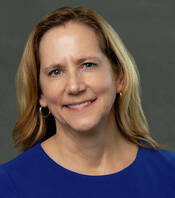
Dr. Angela Amedee received her Ph.D. in Microbiology from LSU School of Medicine - New Orleans, in 1992. Following postdoctoral training at Tulane National Primate Research Center, Dr. Amedee joined the LSUHSC School of Medicine faculty in 2001. She was promoted to Professor in 2016, Associate Dean of Graduate Studies in 2017, and Interim Dean in 2021. Dr. Amedee teaches virology to medical health professionals at LSUHSC New Orleans and mentors students in the PhD and MD/PhD programs. Her laboratory investigates the pathogenesis of Human Immunodeficiency Virus (HIV), with a focus on the viral and host factors responsible for transmission. Through collaborations with other scientists, her studies investigate the mechanisms involved in mother-to-infant transmission of HIV and the establishment and maintenance of HIV reservoirs. Another main focus of the laboratory seeks to identify how alcohol consumption and drug abuse affect the transmission of HIV and modulate disease progression.
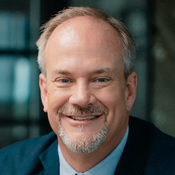
Dr. Christopher Baglow serves as the Director of the Science & Religion Initiative at the McGrath Institute for Church Life at the University of Notre Dame, creating programs, courses, talks and publications that bring the Catholic faith and modern science into dialogue. His work is the culmination of 18 years of faith and science scholarship and educational program creation, as well as a lengthy career in Catholic theological education spanning high-school, undergraduate, graduate and seminary teaching. In his five years as Director, SRI has seen major growth, reaching over 2700 Catholic leaders and educators from diocesan offices and parishes, but above all science and religion teachers from Catholic high schools, supported by three successive grants from the John Templeton Foundation. For this work, he was co-recipient of an Expanded Reason Award in Teaching from the Universidad Francisco de Vitoria (Madrid) and the Vatican Joseph Ratzinger Foundation (Rome).
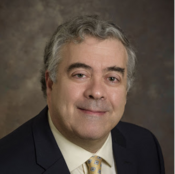
Dr. Stephen M. Barr is President of the Society of Catholic Scientists and Professor Emeritus of theoretical particle physics at the University of Delaware. He received his Ph.D. from Princeton University in 1978. His research has centered mainly on “grand unified theories” and the cosmology of the early universe. In 2011, he was elected to be a Fellow of the American Physical Society “for his original contributions to grand unification, CP violation, and baryogenesis”. He writes and lectures extensively on the relation of science and religion. He is the author of Modern Physics and Ancient Faith (Univ. of Notre Dame Press, 2003) and The Believing Scientist: essays on science and religion (Eerdmans, 2016). He was elected in 2010 to the Academy of Catholic Theology and was awarded the Benemerenti Medal by Pope Benedict XVI.
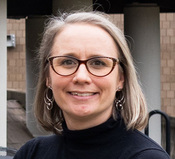
Dr. Kate Bulinski is an Associate Professor of Geosciences in the Department of Environmental Studies at Bellarmine University. She received her B.S. in Geoscience from The Pennsylvania State University and her Ph.D. from the University of Cincinnati. Dr. Bulinski’s current research efforts are focused on exploring the paleoecological relationships of Paleozoic coral ecosystems at the Falls of the Ohio State Park in Clarksville, Indiana. Dr. Bulinski also has an interest in exploring the intersectionality of faith and science, especially within the Catholic tradition, which she explores in her teaching, research and educational outreach. Kate is the 2017 recipient of the Excellence in Science Education and Outreach from the Kentucky Academy of Science, the 2017 recipient of the William T. Miles Memorial Award for Community Service and received the Doris A. Tegart Teaching Excellence Award in 2023. Aside from her teaching, research, and service endeavors, Kate also enjoys gardening, beekeeping, and spending time with her husband and four children.
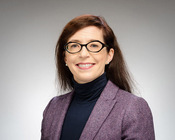
Heather Foucault-Camm, PGCE, M.Sc., M.A., is Project Director at the McGrath Institute for Church LIfe at the University of Notre Dame. She received an M.Sc. in Physical Chemistry from University of Ottawa in Canada and a PSGC in Science Education from University of Leeds in the UK, has completed the program for the National Certificate in Health Care Ethics from the NCBC, and is working towards an M.A. in Theology at the University of Notre Dame. A veteran science teacher and curriculum expert, she has created and implemented a high school course with a two-part focus on the Church’s historic relationship with science and bioethics.
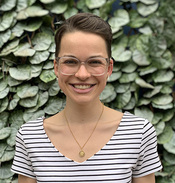
Dr. Sofia Carozza is a postdoctoral researcher at Harvard Medical School. She completed her doctorate in neuroscience in Summer 2023 as a Marshall Scholar at the University of Cambridge. Through her research on child brain development, she explores the causes and mechanisms of resilience after childhood trauma. Sofia is a graduate of the University of Notre Dame, where she studied neuroscience and theology as a Hesburgh-Yusko Scholar and was the valedictorian of the class of 2019.
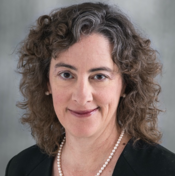
Dr. Maureen Condic is an Associate Professor of Neurobiology at the University of Utah. Her research focuses on the role of stem cells in development and regeneration, and has been recognized by both the Basil O'Connor and the McKnight awards. She is currently a member of Pontifical Academy for Life, and in 2018, was appointed by the President of the United States to the National Science Board. Dr. Condic is the co-author of Human Embryos, Human Beings (winner of the 2020 international Expanded Reason Award), that explores the nature of the human embryo from scientific and philosophical perspectives. Her second book, Untangling Twinning (2020), considers the ethical and biologic issues raised by human monozygotic twinning. Dr. Condic has taught Human Embryology in the University of Utah Medical School for 20 years. She has a strong commitment to public education, and has presented over 250 seminars and interviews, both nationally and internationally, on science policy, bioethics and her own research.
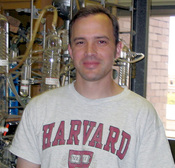
Dr. James P. Donahue is a synthetic inorganic chemist at Tulane University, where he is a professor of chemistry. His lab focuses on hydrogen catalysis using metal sulfide clusters and on development of molecular system that can host weakly-coupled electron spins for quantum memory/computing applications.
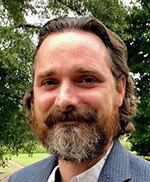
Dr. Cory Hayes is the Dean of Discipline and teaches Humanities and Theology at John Paul the Great Academy in Lafayette, LA. He holds a Ph.D. in Systematic Theology from Duquesne University in Pittsburgh, PA. His research and teaching interests include: Byzantine and Eastern Christian theology, Philosophy of Nature, and the relation between Catholic theology, philosophy, and empirical science. He and his wife Jennifer reside in Lafayette, LA and they have 8 children.
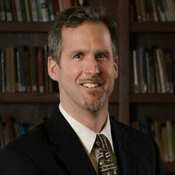
Dr. Dan Kuebler is a Professor of Biology at Franciscan University in Steubenville, Ohio, where he teaches courses on evolution, cell physiology, and science and faith. He is the project co-lead for the Purposeful Universe, a Templeton funded grant that focuses on examining the order and purpose inherent in the world around us. which includes the Purposeful Lab podcast that he co-hosts with Catherine Hadro. Dan is the co-author of The Evolution Controversy: A Survey of Competing Theories (Baker Academic, 2007) and another forthcoming book on Evolution and Catholicism (Word on Fire Press) and he has written both academic and popular articles on issues related to science, religion and ethics. He is Vice-President of the Society of Catholic Scientists. He has been married to his wife Nellie for 26 years and has six kids and resides in Steubenville Ohio.
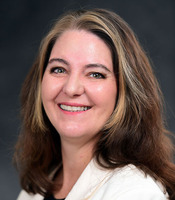
Dr. Heather Machado was born and raised in Metairie, Louisiana, attended Mount Carmel Academy, and graduated from the University of New Orleans. She earned her PhD at Tulane School of Medicine in 2005, and completed a postdoctoral fellowship at Baylor College of Medicine in Mammary Gland and Breast Cancer Biology in 2013. She opened her research lab at Tulane School of Medicine in 2013, where she has maintained a rigorous research program in breast cancer biology. Since joining the faculty of Tulane, she has been actively engaged in teaching medical and graduate students, and is a member of the Catholic Society of Scientists. She is currently an Associate Professor of Biochemistry and Molecular Biology, a member of the Louisiana Cancer Research Consortium, and the Assistant Dean for the Biomedical Sciences Graduate Program.
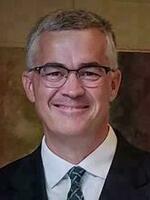
Dr. Kieran McNulty is a professor of anthropology at the University of Minnesota, where he was awarded the McKnight Land-Grant Fellowship 2008, named Scholar of the College in 2017, and has received multiple teaching awards. His principal interests are in the evolution of apes and humans, pursued through paleontological fieldwork in eastern Africa. Kieran conceived of and directs the NSF-funded REACHE project, a collaborative network that coordinates field research at all of the Early Miocene fossil ape sites in eastern Africa, working in close association with the National Museum of Kenya and Uganda National Museum. His research has been funded by the National Institutes of Health, Wenner-Gren Foundation, and Leakey Foundation. He is a member of the Society of Catholic Scientists and was received the Leading with Faith award from the Archdiocese of St. Paul and Minneapolis.
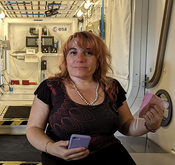
Dr. Maria Elena Monzani is a dark matter data wrangler. Her research field is Astroparticle physics, which focuses on topics at the intersection between particle physics and astrophysics/cosmology, using the tools of data-intensive science. She received a dual Ph.D. from the University of Milano and the University of Paris 7, performing research with the Borexino experiment that measured neutrinos produced by the Sun. She then held a postdoctoral position at Columbia University before joining SLAC in 2007 to work on the Fermi Gamma-ray Space Telescope. Today, Monzani is a lead scientist at SLAC and a senior Kavli Institute for Particle Astrophysics and Cosmology member at Stanford. She leads the software computing effort for the LZ Dark Matter Experiment and the science operations team for the Fermi satellite. She is also an Adjunct Scholar at the Vatican Observatory and enjoys discussing the shared philosophical foundations of scientific and religious endeavors.
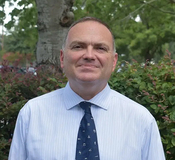
Dr. Robert Rohli is a Professor in the Department of Oceanography & Coastal Sciences at LSU College of the Coast & Environment. His research interests include coastal weather and climate, atmospheric circulation variability, natural hazards and risks, tropical cyclone dynamics, surface-atmosphere interactions, synoptic meteorology and climatology, geoscience education, and the history of science. He received his Ph.D. from Louisiana State University.
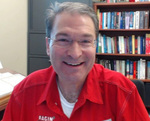
Dr. Michael W. Totaro, O.P. is a Perpetually Professed Dominican Tertiary (Lay Dominican), and is an associate professor with the School of Computing and Informatics at the University of Louisiana at Lafayette. His research interests are in intelligent systems, modeling, and simulation. Dr. Totaro teaches undergraduate and graduate courses in computing and informatics, and supervises graduate students' master's theses and doctoral dissertations. Dr. Totaro has a B.S. degree in computer science (1982), an MBA (1988), an M.S. degree in telecommunications, and a Ph.D. in computer science (2007).
Location, Travel, Parking
The event will take place at Notre Dame Seminary, which is located at 2901 S. Carrollton Avenue, New Orleans. Click here for directions.